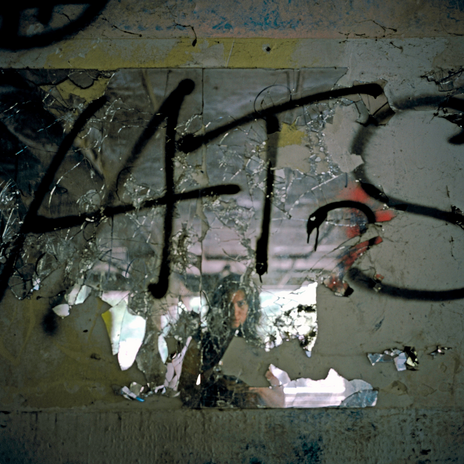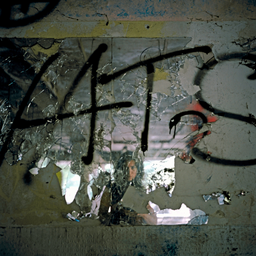“I don’t care so much about the awards. I do what I do because I love it and that is my biggest award,” she explained.
Dragana Jurišić, 45-years-old, survived the Croatian War of Independence in September 1991. It taught her to think about cheering for herself and achieving success for her own joy and happiness instead of dying in war.
Dragana Jurišić’s traumatic past life
The Croatian sniper forces took over her apartment on the 8th floor as a shooting post while she and her mother were made to head to the basement. Jurišić’s father and younger brother were away from home, leaving only herself and her mother to face the chaos by themselves.
Since they left in a rush, she grabbed a rucksack and stuffed it with a pair of scissors, her favourite boots, and a huge leather bound bible.
“I am not even religious. I don’t know what I was trying to do, maybe I was trying to bargain with God before I died,” said Jurišić with an expression of befuddlement.
Her apartment was right above the Yugoslav People’s Army (JNA) barracks and the location was one of the many storage depots for explosives and other weapons. It was the last day of the summer holidays and everyone was going back to school. Earlier that day, Jurišić met with her friends in town and walked down the river and realised an unusual emptiness in their hometown. They were rushed home by a group of men.
On their way down to the basement, her mother heard the fiddling of the main entrance doorknob. She ran towards the door thinking that it was Jurišić’s father and brother returning home. Little did they know, there were soldiers with machine guns behind the door that started shooting everywhere.
“That was probably the most traumatic part, also waiting to die because the building was burning above us,” said Jurišić. The fire was from the Yugoslav soldiers shooting thermo kinetic bombs into her apartment when they noticed the Croatian sniper forces.
Croatian soldiers taught everyone how to “zig-zag run” to escape snipers aimed at them when they ran out of the burning building’s basement. They were led to a basement of a shopping mall where they spent a night for shelter. In the shopping mall, she and others grabbed things off the shelves for survival.
All she remembered was the feeling of annoyance. She claimed that the whole situation was just inconvenient. All she thought was, “Oh my God, there is some girl in America who gets a nervous breakdown because of a zit on her face and here I am about to die”.
She remembers hopping from basement to basement before reuniting with her father and brother in the basement of the city centre hotel and finally, they were given an abandoned apartment to live in.
They were refugees in her own country, however, she said “the beauty of what’s leftover from communism is that students were well taken care of”. She pursued a BA in Psychology for five years and because of her refugee status, she did not have to pay for her tuition fees and accommodation.
However, her family lived with profits from her parents selling the little wooden shack and land from her hometown. They lived on cereal and tuna pasta. Her personal favourite is tuna pasta. “I do love tuna pasta. It is completely diabolical, you cook pasta and throw a can of tuna on it and add tomato sauce” she said, blushing at the simplicity of her preference in food.
She worked as a clinical and educational psychologist for a year and then lived in Prague for six months before she moved to Ireland.

Psychological Impact
She was in a basement when she felt her heart pounding, body temperature rising, sweating, and her throat tightening for the first time.
“I thought I was having a heart attack and I am a psychologist. I just couldn’t believe I was experiencing panic attacks suddenly,” said Jurišić. Loud noises like trucks reminded her of the war and she hates fireworks. “I hate fireworks, I would ban it everywhere,” she explained
Jurišić’s world of Photography
She was inspired by her father to do photography, he was an ardent amateur photographer who gave her the tools and knowledge to begin her journey into the world of photography.
She took up a certificate in photography just to dip her feet into the water and finally quit her job as a psychologist to pursue a Masters in Documentary Photography at the University of Wales. With compliments from her tutors giving her the confidence, she journeyed into Photography. She holds 30 awards and counting for her remarkable photography.
“I don’t care so much about the awards. I do what I do because I love it and that is my biggest award,” she explained.
Jurišić’s inspirations and advice
Her grandmothers are her inspiration. One who was funny and rough and the other who lost six of her children to the second world war and stood in front of a firing squad a number of times.
“How traumatic of life they lived and still managed to have fun and laugh and move forward in life,” said Jurišić.
Today, Jurišić teaches Photojournalism, Photography, and Imaging at Dublin City University for both Undergraduate and Postgraduate. She also occasionally visited the University of South Wales before the lockdown to give tutorials and talks. Her advice to many is to always find what makes you happy and to be your own cheerleader.
“Sometimes you just need to listen to that voice that knows what’s best for you,” said Jurišić.



